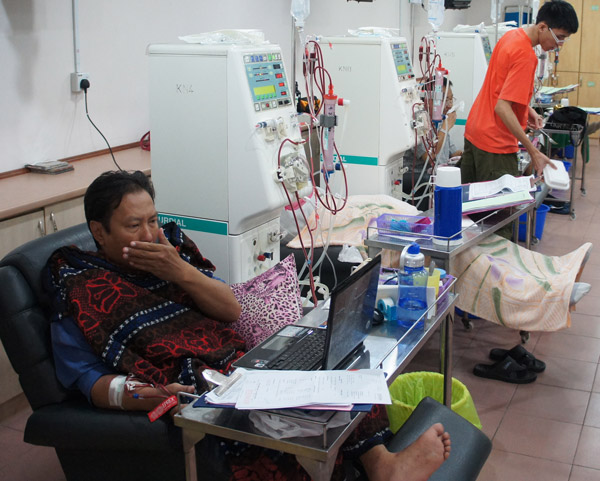KUALA LUMPUR, June 3 — The government spent an estimated RM1.12 billion in 2016 alone to fund end-stage renal disease (ESRD) therapies, a recent study has revealed.
The total annual expenditure by the public health care sector to treat ESRD grew by an astonishing 94 percent within a span of just six years, from RM572 million in 2010 to RM1.12 billion in 2016.
Author of the study, Dr Hirman Ismail of Universiti Kebangsaan Malaysia, pointed out that despite ESRD patients making up only 0.36 percent of the population, the amount spent was a substantial portion at 4.2 per cent out of the total public health care expenditure in 2016. Less than 10 percent of the Malaysian population lives with chronic kidney disease (CKD).

He called into question the sustainability of existing financing mechanisms to fund treatment and emphasised the need to examine the economic burden represented by this disease.
Dialysis constituted 94 percent of the renal replacement therapies (RRT) involved in ESRD treatment, most of which was for haemodialysis. Kidney transplants took up the remaining expenditure.

Out of ten countries whose ESRD expenditure and health spending were reviewed, Malaysia was found to depend largely on haemodialysis.
In 2010, ESRD expenditure constituted 2.95 percent of the public sector’s total health expenditure, which increased to 4.2 percent in 2016.
The study was published in Kidney International Reports.
ESRD refers to the last stage (stage five) of chronic kidney disease. At that stage, kidneys are at 10 to 15 percent of their normal functioning capacity.








